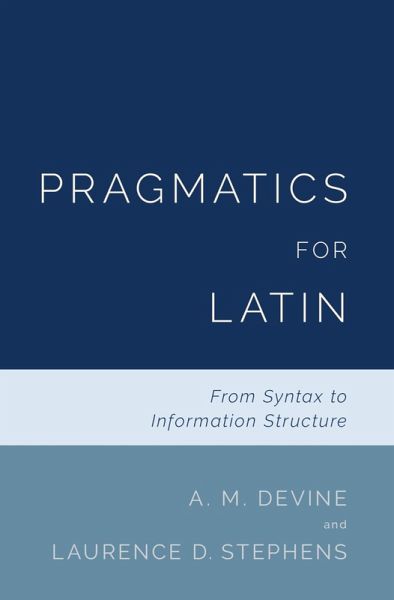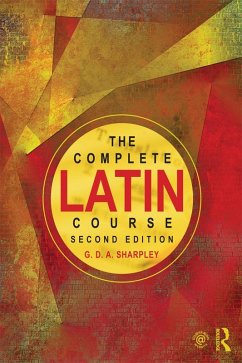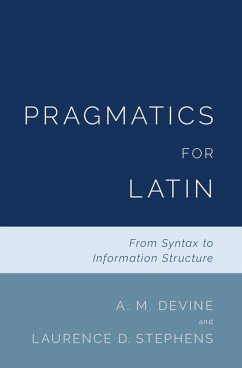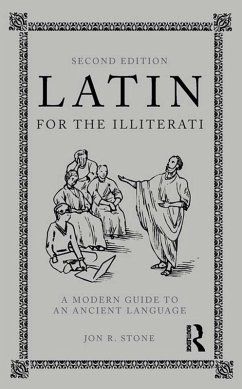
Pragmatics for Latin (eBook, PDF)
From Syntax to Information Structure
Versandkostenfrei!
Sofort per Download lieferbar
32,95 €
inkl. MwSt.
Weitere Ausgaben:

PAYBACK Punkte
16 °P sammeln!
Latin is often described as a free word order language, but in general each word order encodes a particular information structure: in that sense, each word order has a different meaning. Pragmatics for Latin provides a descriptive analysis of Latin information structure based on detailed philological evidence and elaborates a syntax-pragmatics interface that formalizes the informational content of the various different word orders. Using a slightly adjusted version of the structured meanings theory, the book shows how the pragmatic meanings matching the different word orders arise naturally an...
Latin is often described as a free word order language, but in general each word order encodes a particular information structure: in that sense, each word order has a different meaning. Pragmatics for Latin provides a descriptive analysis of Latin information structure based on detailed philological evidence and elaborates a syntax-pragmatics interface that formalizes the informational content of the various different word orders. Using a slightly adjusted version of the structured meanings theory, the book shows how the pragmatic meanings matching the different word orders arise naturally and spontaneously out of the compositional process as an integral part of a single semantic derivation covering denotational and informational meaning at one and the same time.
Dieser Download kann aus rechtlichen Gründen nur mit Rechnungsadresse in A, B, BG, CY, CZ, D, DK, EW, E, FIN, F, GR, HR, H, IRL, I, LT, L, LR, M, NL, PL, P, R, S, SLO, SK ausgeliefert werden.













